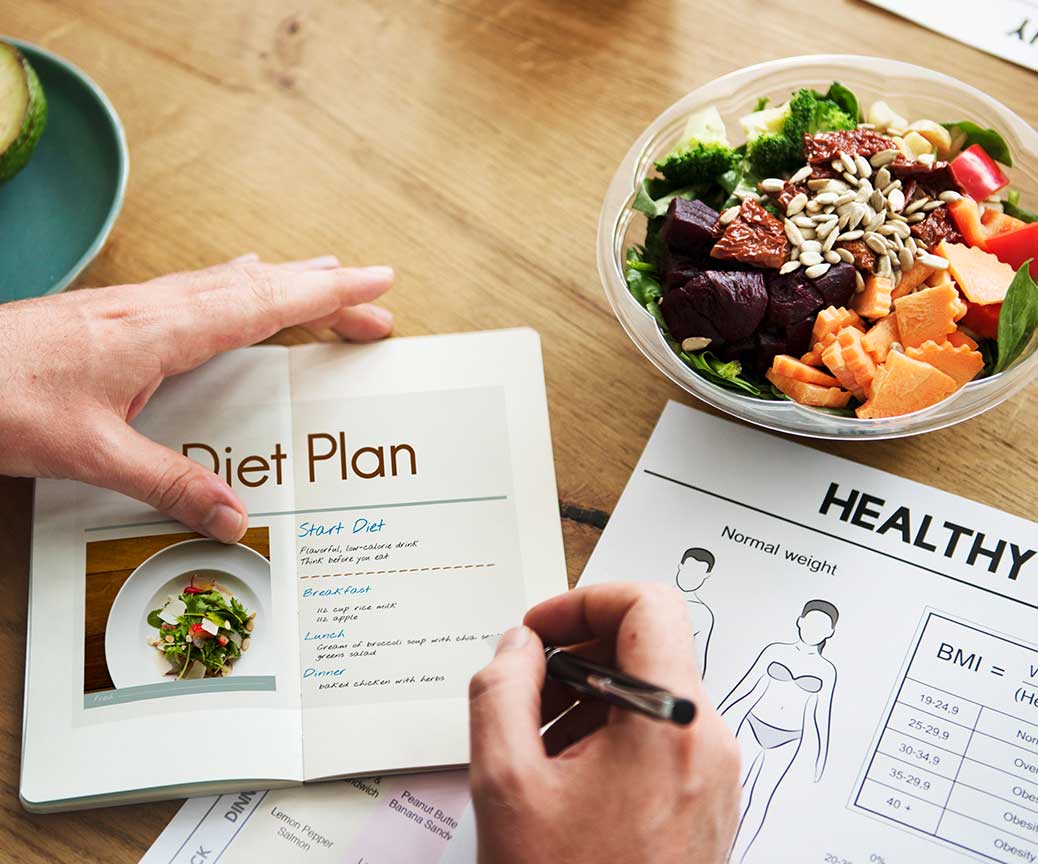
When it comes to managing your weight—whether your goal is to lose, gain, or maintain—it all boils down to one critical tool: the calorie calculator. A calorie calculator helps you understand how much energy your body needs daily. That’s why every fitness enthusiast, dieter, and health-conscious individual should rely on a calorie calculator. The Calorie calculator is your partner in every phase of your weight journey. Ultimately, using a calculator is the most efficient way to ensure you’re on track and making informed decisions.
Understanding Calories: The Foundation of Health
What Are Calories?
Calories are units of energy. Every time you eat or drink, you are consuming calories—units of fuel that your body uses to function. From breathing and sleeping to exercising and digesting, every activity you perform uses energy.
Why Calorie Balance Matters
Your body needs a certain number of calories every day to maintain basic physiological functions. This is known as your Basal Metabolic Rate (BMR). If you consume more calories than you burn, your body stores the extra as fat—leading to weight gain. If you consume fewer, you’ll lose weight. This balance is why a calculator is invaluable. It helps you understand your personal energy needs, allowing you to make smarter choices.
What Is a Calorie Calculator?
Defining the Calorie Calculator
A calorie calculator is a digital or manual tool that helps estimate how many calories you need to consume to maintain, lose, or gain weight. It calculates your daily energy expenditure based on various factors: age, gender, weight, height, and activity level.
The Science Behind the Tool
Modern calculators use equations like the Mifflin-St Jeor or Harris-Benedict formulas to determine BMR and Total Daily Energy Expenditure (TDEE). TDEE is your BMR multiplied by an activity factor, giving you a more complete picture of your needs. Explore Our Website
How the Calorie Calculator Works
Step-by-Step Breakdown
The process is straightforward:
-
Enter your age, weight, height, gender, and activity level.
-
The calculator estimates your BMR.
-
It then calculates your TDEE.
-
You select your goal: lose, maintain, or gain weight.
-
The calculator adjusts your calorie needs accordingly.
Variables That Affect Results
-
Age: Metabolism tends to slow with age.
-
Weight: Heavier individuals usually require more energy.
-
Height: Taller people need more calories.
-
Gender: Males often have higher muscle mass and therefore higher calorie needs.
-
Activity Level: Sedentary, lightly active, moderately active, very active—all influence calorie needs.
Benefits of Using a Calorie Calculator
Precision and Personalization
The primary benefit of a calculator is its ability to provide tailored recommendations. Instead of guessing how much to eat, you can approach your goals with mathematical certainty.
Sustainable Goal Setting
Another key advantage is sustainability. Crash diets often fail because they’re not rooted in your actual needs. A calculator encourages steady progress and long-term habits.
Flexibility Across Goals
Whether you want to shed pounds, build muscle, or maintain your current weight, the calculator adjusts your targets accordingly. It evolves with you as your goals change.
Using the Calorie Calculator for Weight Loss
Creating a Calorie Deficit
To lose weight, you need to eat fewer calories than your TDEE. A calorie calculator recommends a daily deficit—typically between 300 to 500 calories—based on your personal data.
Tracking Progress
Once you receive your calorie target, track your food intake using apps or journals. Monitoring helps you stay aligned with your calculated goals. If you plateau, revisit the calculator and adjust your inputs.
Avoiding Common Pitfalls
Don’t go too low. A steep calorie cut can slow metabolism and lead to nutrient deficiencies. Always let the calculator guide you with safe, science-based recommendations.
Using the Calorie Calculator for Weight Gain
Calorie Surplus Strategy
If your goal is to gain weight—particularly muscle—you need a surplus. The calculator helps determine how many additional calories to eat each day.
Quality Over Quantity
While you need more calories, the quality of those calories matters. Lean proteins, whole grains, healthy fats, and vegetables support healthy weight gain. The calculator ensures you’re not overeating junk food but making balanced choices.
Progress Monitoring
Just like weight loss, gaining weight requires tracking. Use the calorie calculator monthly to reassess your weight and muscle gain trajectory.
Using the Calorie Calculator for Weight Maintenance
Finding Your Sweet Spot
For those looking to maintain their current weight, the calorie calculator identifies your TDEE. Eating at this level keeps your weight stable.
Supporting Long-Term Health
Calorie maintenance is ideal for those who’ve hit their target weight or are happy with their current physique. The calculator helps you preserve your results by preventing unintentional weight changes.
Adjusting for Life Changes
Life events—like aging, job changes, or shifting workout habits—can affect your metabolism. Revisit the calculator regularly to ensure your intake remains appropriate.
Calorie Calculator and Macronutrient Breakdown
Going Beyond Calories
Calories are just part of the story. A calorie calculator that includes macronutrient tracking provides even greater insight.
-
Proteins: Build and repair tissues
-
Carbohydrates: Primary energy source
-
Fats: Support hormones and cellular health
Customizing Macronutrient Ratios
Advanced calculators allow you to adjust the ratio of carbs, proteins, and fats. This is particularly useful for athletes, bodybuilders, or those with specific dietary preferences (e.g., keto or high-protein diets).
Optimizing Performance and Recovery
By pairing a calculator with macro tracking, you not only reach your weight goals but also enhance performance and recovery.
Technology and the Calorie Calculator
App Integrations
Many modern calculators integrate seamlessly with fitness apps like MyFitnessPal, Fitbit, and Apple Health. This enables automatic syncing of data for real-time calorie tracking.
Wearable Devices
Fitness trackers and smartwatches collect data on steps, heart rate, and workouts, which can feed into your calculator to deliver more accurate results.
Online Accessibility
There are numerous websites and mobile apps offering calorie calculator functions for free. This makes health management more accessible than ever before.
Common Myths About the Calorie Calculator
Myth 1: One-Size-Fits-All
Many believe calorie recommendations are the same for everyone. This is false. The calorie calculator proves that every individual has unique requirements.
Myth 2: Only for Weight Loss
While weight loss is a popular use, the calculator supports a wide range of goals, including muscle gain and maintenance.
Myth 3: It’s Always 100% Accurate
No tool is perfect. The calorie calculator gives estimates based on general equations. However, personal tracking and tweaking are still necessary for precision.
Tips for Maximizing Calorie Calculator Accuracy
Update Regularly
Your weight, activity level, and even age can change. Update your information in the calorie every few weeks to ensure the results remain accurate.
Be Honest With Input
The accuracy of a calorie calculator depends on the data you provide. Don’t underestimate your portions or activity level.
Combine With Tracking
Use food journals or apps to log your daily intake. Compare your actual calories consumed with the target from your calorie calculator.
Real-Life Success Stories
Sarah’s Weight Loss Journey
After years of yo-yo dieting, Sarah discovered a calculator. By inputting her stats and creating a manageable deficit, she lost 30 pounds in 6 months without feeling deprived.
Jason’s Muscle Gain
Jason struggled to gain weight until he used a calorie calculator to create a surplus. By pairing this with strength training, he gained 15 pounds of lean muscle.
Maria’s Maintenance Milestone
Maria reached her ideal weight and used the calorie calculator to find her maintenance level. Three years later, she’s still at her goal weight.
Why the Calorie Calculator Stands Out
Scientific and Logical
Unlike fads or guesswork, the calorie calculator uses established metabolic equations. This means the advice is grounded in science.
Empowering and Educational
The more you use a calorie calculator, the more you understand your body. It teaches you about energy balance, nutrition, and self-awareness.
Suitable for All Levels
Whether you’re a beginner or a seasoned athlete, the calculator adapts to your level of knowledge and commitment.
Making the Calorie Calculator a Daily Habit
Morning Check-Ins
Start your day by reviewing your calorie goal. Use your calculator to stay mindful of your targets.
Weekly Adjustments
Every week, evaluate your progress. Are you gaining, losing, or maintaining as expected? If not, revisit the calculator and adjust accordingly.
Lifestyle Integration
Make the calculator part of your lifestyle—not a one-off tool. Pair it with balanced meals, regular exercise, and quality sleep.
Final Thoughts: Take Charge with the Calorie Calculator
There are countless diet plans, workout routines, and fitness trends—but few are as effective or sustainable as using a calorie. It brings structure to your journey, no matter your goal. From weight loss to muscle gain and maintenance, the calorie calculator remains your most valuable companion.
With so many benefits—personalized recommendations, sustainable changes, and clear goal-setting—the calculator is the ultimate tool for anyone serious about their health. Stop guessing and start measuring. Your transformation starts with a single step: inputting your details into a calorie calculator and following the path it outlines.
Let the calorie be your guide, your tracker, and your support system. Whether it’s your first time using one or your hundredth, it always delivers insight, control, and results.





